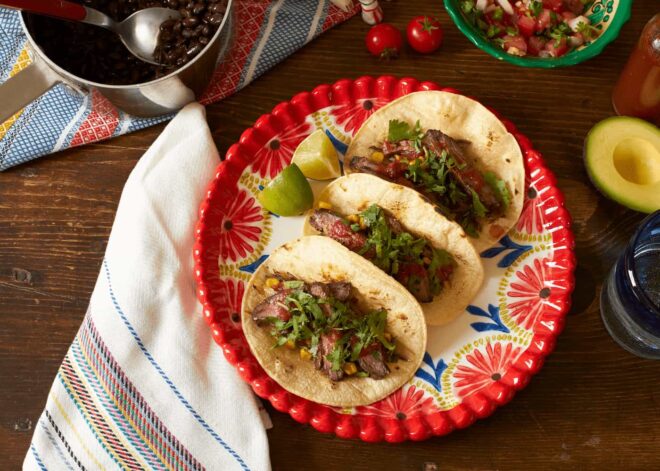Average restaurant owner salary in 2023
Editorial Team
6 min read
Restaurant ownership has been glorified in recent years, especially as the popularity of celebrity chefs has inspired people in various cooking roles and levels of expertise to consider what it might be like to open a restaurant. But, is running a restaurant really a money-maker?
Here’s a look at the average restaurant owner salary and what factors could affect your ultimate take-home pay.
How much do restaurant owners make?
How much restaurant owners make can be as high as $333,000 and as low as $19,500 per year. According to ZipRecruiter, the majority of restaurant owners earn between $45,500 and $100,000, with the average restaurant owner’s salary just over $97,000, which equates to roughly $47 an hour. However, that hourly figure is based on a 40-hour work week, which is atypical in the hospitality industry. Indeed’s annual base pay estimate for an average restaurant owner salary in 2023 is closer to $56,000.
What causes such a large discrepancy in how much restaurant owners make? There are several factors at play, all of which can influence how much a restaurant owner gets paid.
Factors impacting restaurant owner pay
While we may use the word “salary” to describe a restaurant owner’s earnings, it’s unusual for an owner’s pay to be an inflexible, predetermined amount. It’s more likely that the numbers on each paycheck could change regularly to account for a number of important factors.
A good shortcut for estimating restaurant owner salaries, according to the National Federation of Independent Business, is based on a percentage of profits over the previous two to three years. However, if you haven’t been in business for long, or are still establishing your customer base, these factors can help you better predict an appropriate restaurant owner salary.
Fluctuating revenue from month to month
One approach to estimating a small restaurant owner’s salary is to pay yourself a percentage of your average restaurant revenue, with some room to account for major fluctuations. Your paycheck may be a little healthier if you’re having a good month.. Special promotions, tourist season, or a great review from a food critic could help determine how many reservations you get, the amount of revenue generated, and how much you can potentially earn during a given pay period. If numbers are lower than expected or you’re having a mid-season slump, that may be reflected in a less attractive paycheck.
Working hours vs. personal time
Unless you have a successful restaurant empire and tons of employees to whom you can delegate the majority of daily tasks, you’ll need to dedicate time to keeping your restaurant fully operational. Often, spending more time on your business can have a positive correlation to increased income and profitability.
The flip side of that coin is that too much time away from the business – for instance taking multiple vacations or simply being distracted by other endeavors – can negatively affect the company’s finances and your salary.
Longevity of the business
Generally speaking, the longer a restaurant has been in business, the steadier and more predictable its revenue streams. As time passes, you should get better at estimating labor costs and inventory. By watching your sales trends through your POS reporting, you can learn how much business you generate throughout the year, and determine how special events, like annual music festivals and surges around the holiday season, affect your bottom line. Combine that with increasing guest loyalty, full reservation books, and an experienced chef who knows how to optimize food costs, and you could see higher profits and a higher salary.
Operational expenses
It’s quite possible for a restaurant owner’s salary to fluctuate to reallocate funds needed for company expenses. If a business is profitable, paying yourself less than 50% of the profits can leave more than half of your monthly revenue to be used for everything from paying debts to funding improvements, such as building a new patio or purchasing a new refrigeration system.
However, sometimes the 50% set aside for expenses isn’t enough. In that case, the extra money needed to make ends meet that month could come from the owner’s paycheck.
How to help improve restaurant profitability
Finding ways to make your restaurant more profitable can also help improve your salary. Whether your entire paycheck is based on a percentage of revenue, or you’re working on a combination of base salary plus percentage model, more revenue can equal more pay.
Here are some tips to help increase your profit margin and overall revenue:
- Improve daily operations: Running a tight ship can pay off in a multitude of ways (sometimes quite literally). Develop checklists for opening and closing the restaurant; ensure your staff members are on the same page in terms of service; keep a close eye on inventory; and create a maintenance schedule that ensures your equipment stays in tip-top shape. Adhering to best practices can help avoid costly mishaps and pricey repairs.
- Understand your profit margins: It takes a lot of money to run a restaurant. Ingredients, equipment, marketing, rent, utilities, employee pay, licensing fees–all these expenditures eat into your profit margins. Take steps to protect your profits, perhaps by reducing food waste; keeping staff happy and engaged to decrease employee turnover; and adding additional revenue streams (think merchandising or curbside pickup/takeout).
- Increase restaurant sales: Even if your profit margins stay the same, higher total revenue means more actual dollars hitting your bank. You can work on increasing sales by partnering with a third-party delivery service to widen your audience and make delivery and takeout a more substantial part of your business model. Hit up your social media followers and get them excited to visit for a meal or two. Analyze your menu to see where you can make improvements, perhaps adding more opportunities for your team to upsell premium liquors or appetizers and desserts.
- Hire a stellar staff: Your front-of-house and back-of-house teams are the beating heart of your restaurant. They determine everything from the efficiency of the dinner service to welcoming guests to handling small issues quickly before they become major problems. Take the time to hire the right people, train them well, pay them competitively, and create a company culture that makes people satisfied to work for you.
In the food and beverage industry, profits and restaurant owner salaries can be correlated. If you’re interested in finding more ways to help your restaurant run more smoothly (and perhaps increase your annual pay in the process), reach out to a Clover Business Consultant today.
SPEAK TO AN EXPERTThis information is provided for informational purposes only and should not be construed as legal, financial, or tax advice. Readers should contact their attorneys, financial advisors, or tax professionals to obtain advice with respect to any particular matter.
Related Posts
How to start a business in California
Full Service Restaurants (FSR)
How to photograph food well
Popular Topics
Stay in touch
Sign up and learn more about Clover.
Thank you for your subscription!
More posts about starting a small business
eBook





